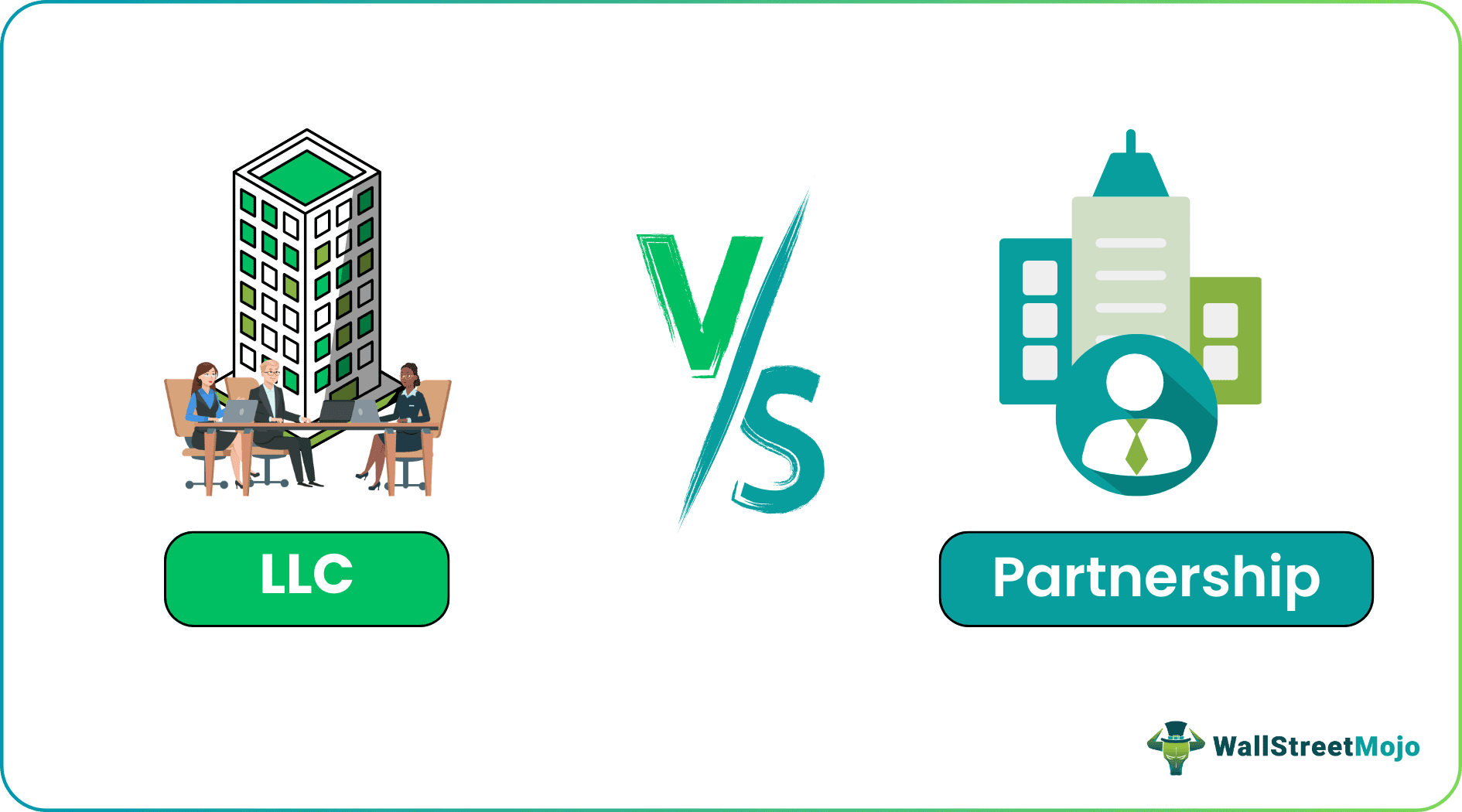Table Of Contents
Difference Between LLC and Sole Proprietorship
LLC is a separate legal entity run by its members having limited liability, and it is mandatory for an LLC to get registered, whereas sole proprietorship is a sort of business arm of an individual which is not separate from its owner; hence its liabilities are not limited, and there is no need to register sole proprietor.
There are notable differences between them. When individuals start their businesses, they go for a sole proprietorship. LLC is an extension of sole proprietorship where many members own the company.
In a sole proprietorship, there’s no separate entity. Whatever the business earns is the owner’s responsibility. And as a result, the owner needs to pay personal income taxes. In the case of LLC, it’s a bit different. LLC and its members have a separate legal entity, but the members need to pay taxes as per the taxes rates.
The owner himself manages a sole proprietorship. But in the case of LLC, sometimes the members (if fewer in numbers) run the business, or they select a few managers who run the business.

The biggest advantage of an LLC is that the liability of a member of the LLC is limited to the investments she has made. However, for a sole proprietorship, the total liability lies with the business owner.
Sole proprietorship business owners don't worry about funds. If he has his funds and invests in his business, it is regarded as business funds (since business funds and personal funds are the same). But in the case of LLC, the members need to keep records so that the personal funds and the business don't get mixed up.
The only regulation of sole proprietorship businesses is that they need to ensure that they’re not using a name used by another in a similar territory. However, LLC needs to register as per the state regulation. That’s why, for a sole proprietorship business, the cost of forming an organization is quite low. But for LLC, the upfront cost is around $100 to $800.
LLC vs Sole Proprietorship Infographics
Let’s see the top difference between LLC vs. Sole proprietorship.

Key Differences
- An LLC has a separate legal entity. The members of the LLC are considered separate from the business. On the other hand, in the case of a sole proprietorship, the owner and the business have no separate legal entity.
- One or more members need to follow the state regulations and register to form an LLC. To form a sole proprietorship, one doesn’t need to follow any regulations. Rather, the owner needs to make sure that his business name is original.
- To create an LLC, the members need to expend around $100 to $800. To form a sole proprietorship, the cost is much lesser than forming an LLC.
- The members of an LLC will only have liability to the extent of their investments. For sole proprietorship, the owner's liability is unlimited, and there’s no protection on the liability.
- The taxes for an LLC are charged on the member’s salary/profit. The taxes of a sole proprietorship are treated as personal taxes.
LLC vs Sole Proprietorship Comparative Table
| Basis for Comparison | LLC | Sole Proprietorship |
|---|---|---|
| 1. Meaning | A Limited Liability Company run by the members of the company. | A single owner runs a single unit of business. |
| 2. Separate Entity | An LLC and the members have separate entities. | The company and the owner in sole proprietorship don’t have any separate legal entity. |
| 3. Forming formalities | To form an LLC, the member/s need to register as per the state regulations. | To form a sole proprietorship, the owner needs to ensure that the business's name isn’t the same as another business in the same territory. |
| 4. Fees for forming | To form an LLC, it costs around $100 to $800. | To form a sole proprietorship, there’s no cost to be borne by the owner. |
| 5. Taxation | LLC has a single taxation method. The taxes are charged to the members at a rate applicable. | For a sole proprietorship, the taxes are charged on the owner's income. There’s no difference between the owner’s taxes and business taxes. |
| 6. Liability protection | For an LLC, the members are liable to the extent of their investments in the LLC. | For a sole proprietorship, the owner is liable for the entire business. And there’s no liability protection. |
| 7. Paperwork | For an LLC, there is less paperwork. | For a sole proprietorship, there’s no paperwork. |
Conclusion
Normally, people start their businesses as sole proprietors. Later, when they want to go a little bit, they form an LLC and take help from other individuals. In an LLC, one would get liability protection not available in the sole proprietorship. Individuals go for LLC to reduce the liability on their assets as well.
